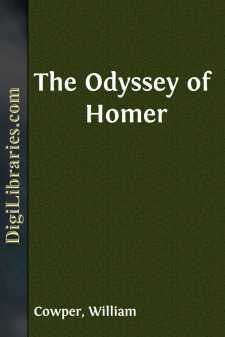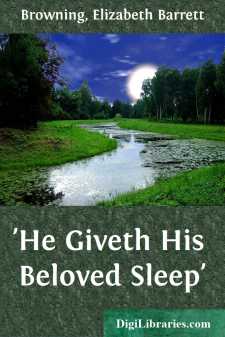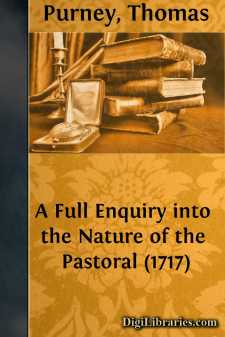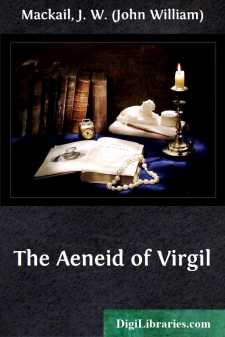Poetry Books
Sort by:
by:
William Cowper
ARGUMENT In a council of the Gods, Minerva calls their attention to Ulysses, still a wanderer. They resolve to grant him a safe return to Ithaca. Minerva descends to encourage Telemachus, and in the form of Mentes directs him in what manner to proceed. Throughout this book the extravagance and profligacy of the suitors are occasionally suggested.Muse make the man thy theme, for shrewdness famedAnd...
more...
by:
L. P. Hubbard
A NOTE TO THE MODERN READER A Little Book for a Little Cook was originally published by Pillsbury in 1905. This new reproduction has all of the recipes from the original softcover edition, but is being reissued with the modern reader in mind. The collector will note some small departures from the original book, but the little cook will no doubt find what is here to be fun to cook, delicious, and warmly...
more...
by:
A. Hoatson
JIM was a boy who was fond of clowns,And thought they were excellent fun;He talked so much of them and their ways,That one night he dreamed he was one. He dreamed he was feeding five fat geeseOn boiled slate-pencils and rice:He said it was wholesome food for geese,But they said, “More wholesome than nice.” HE dreamed that he set two geese to dance,While he took a fiddle and played.He said, “You...
more...
THE SLEEP Of all the thoughts of God that are Borne inward unto souls afar, Along the Psalmist’s music deep, Now tell me if that any is, For gift or grace, surpassing this— ‘He giveth His beloved, sleep’! What would we give to our beloved? The hero’s heart to be unmoved, The poet’s star-tuned harp, to sweep, The patriot’s voice, to teach and rouse, The monarch’s crown, to light the...
more...
by:
J. J. Howard
THEFirst BookOF THEMETAMORPHOSESOFOVID. From bodies various form'd, mutative shapesMy Muse would sing:—Celestial powers give aid!From you those changes sprung,—inspire my pen;Connect each period of my venturous songUnsever'd, from old Chaös' rude misrule,Till now the world beneath Augustus smiles. While yet nor earth nor sea their place possest,Nor that cerulean...
more...
by:
Alfred Noyes
I. STEADFAST as any soldier of the line He served his England, with the imminent death Poised at his heart. Nor could the world divine The constant peril of each burdened breath. England, and the honour of England, he still served Walking the strict path, with the old high pride Of those invincible knights who never swerved One hair's breadth from the way until they died. Quietness he loved, and...
more...
by:
Thomas Purney
INTRODUCTION In the preface to each of his volumes of pastorals (Pastorals. After the simple Manner of Theocritus, 1717; Pastorals. viz. The Bashful Swain: and Beauty and Simplicity, 1717) Thomas Purney rushed into critical discussions with the breathlessness of one impatient to reveal his opinions, and, after touching on a variety of significant topics, cut himself short with the promise of a future...
more...
by:
Virgil
GEORGIC I What makes the cornfield smile; beneath what starMaecenas, it is meet to turn the sodOr marry elm with vine; how tend the steer;What pains for cattle-keeping, or what proofOf patient trial serves for thrifty bees;-Such are my themes.O universal lightsMost glorious! ye that lead the gliding yearAlong the sky, Liber and Ceres mild,If by your bounty holpen earth once changedChaonian acorn for...
more...
by:
Various
THE FAR AWAY COUNTRY NORA HOPPER CHESSON Far away's the country where I desire to go, Far away's the country where the blue roses grow, Far away's the country and very far away, And who would travel thither must go 'twixt night and day. Far away's the country, and the seas are wild That you must voyage over, grown man or chrisom child, O'er leagues of land and water a...
more...
BOOK FIRST THE COMING OF AENEAS TO CARTHAGE I sing of arms and the man who of old from the coasts of Troy came, an exile of fate, to Italy and the shore of Lavinium; hard driven on land and on the deep by the violence of heaven, for cruel Juno's unforgetful anger, and hard bestead in war also, ere he might found a city and carry his gods into Latium; from whom is the Latin race, the lords of Alba,...
more...











